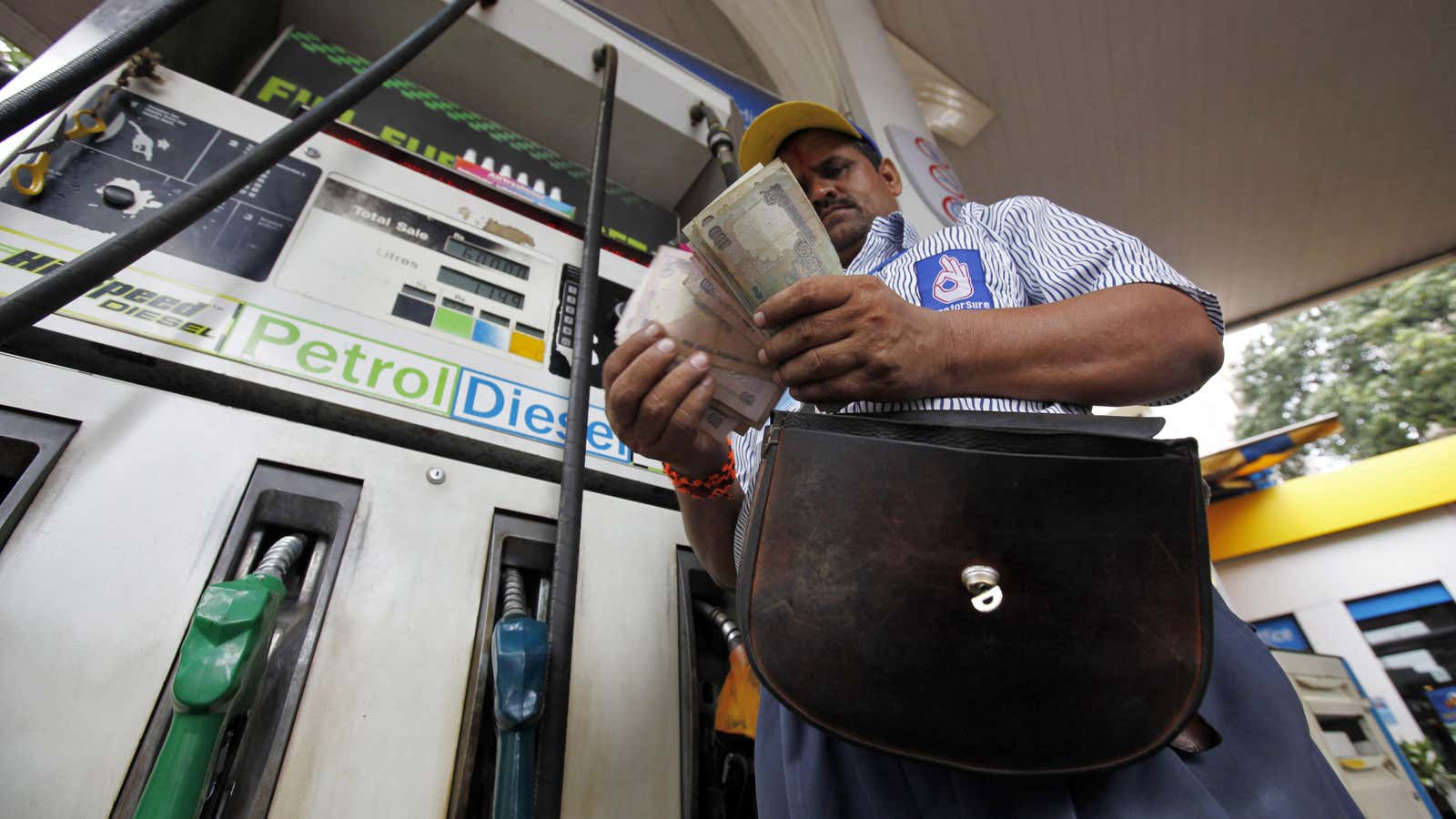Indian prime minister Narendra Modi had a timely gift for Indians on Diwali: Lower excise taxes on fuel starting Nov. 4. His administration touted the move as “a fillip to the economy,” but it should help him politically, too.
The tax cuts—5 rupees ($0.067) per litre for petrol, and Rs10 ($0.134) per litre for diesel—are an attempt to quell growing resentment over rising fuel prices. The new policy should help farmers, manufacturers, and transporters, who have been unnerved by the steep price rises, the ministry of petroleum and natural gas said in a statement.
But opposition political parties, which had been lambasting the government over the cost of fuel, suggested the drop in taxes is an attempt to regain lost popularity after the Modi government’s poor show at the polls. Rival party Congress’ general secretary Priyanka Gandhi Vadra alleged that the reduction was made “out of fear, not from the heart.”
India’s fuel price frenzy
The surging cost of crude oil has pushed fuel prices to record highs globally. India has been hit especially hard since it imports around 85% of the oil it consumes. Over the past few weeks, its petrol and diesel prices have skyrocketed.
The cuts in petrol and diesel excise duties are the first in three years. The government’s markdown comes at a time when its repository is filled with funds from rising goods and services tax collections and the higher excise duties predating the cuts.
Which states are cutting VAT on petrol and diesel?
The central government encouraged states to “commensurately reduce VAT (value added tax) on petrol and diesel to give relief to consumers.” Several of the states governed by Modi’s Bharatiya Janata Party (BJP) and its allies quickly followed suit: Uttarakhand and Odisha slashed the tax of both fuels by Rs2 and Rs3 respectively; Assam, Gujarat, Tripura, Manipur, Karnataka, Bihar, Mizoram, and Goa all announced Rs7 cuts; and Uttar Pradesh and Haryana announced bigger reductions of Rs12 for both petrol and diesel.
The southern state of Kerala—where BJP didn’t win a single seat during assembly elections—vehemently opposed offering any VAT cuts, citing the state’s poor financial condition. Kerala’s finance minister KN Balagopal likened the central government to “a pickpocket who offers pocket money after robbing a man,” adding that “there is a limit to the reduction which can be offered by the state.”
